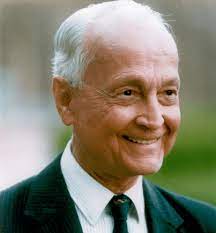John Templeton, one of the early pioneers of global investing, founder of the Templeton Growth Fund in 1954 which grew into one of the most successful investment funds, once said that “To be successful in investing, you have to keep changing your ideas all the time, more than once a year.”

.
For example, with this attitude he was able to exploit exceptional lowly priced Japanese shares (PERs around 4 – 5) in the 1950’s because he had the flexibility of mind to switch from the consensus view that Japan was merely a bombed-out manufacturer of poor quality items.
“I knew that it had a great future. So we invested more and more wherever we could find bargains. One of our basic principles in investing is to buy wherever things are the lowest price. And you can only get things at a low price if somebody’s selling. Nothing else pushes your share down except all the people selling. So people were selling in Japan after the Second World War and the bargains were there and we loaded up on them.” (TV Interview with Charlie Rose 14.5.97)
He similarly looked at South Korean shares and later Chinese shares when they were cheap, but most people stayed away. These acts required an enormous degree of mind-independence, and a willingness to change a view.
During the development of countries or companies there are long periods when it doesn’t make sense to invest. It might be that the political and economic risks are just too great, or the culture is wrong for busineses to survive. But, if you keep looking, keep analysing, then there might come a time when you need to change your mind and buy big.
Another example from John Templeton’s life, again massively against the consensus: “Well, it was clear if ever the companies that are worthless and are losing money ever come back to life, it’s during a major world war. So the a couple of days after Hitler invaded Poland, I looked over, all the New York Stock Exchange and the American Stock Exchange. There were 104 companies whose prices had gone down below a dollar a share. And so I called up Dick Platt [broker] and said, ”Buy me $100 worth of everything below a dollar a share” and he called back and said, ”We’re doing it, but 37 of them are in bankruptcy.” And I said, ”Those are the best of all.” The one outstanding one, Charlie, was the $7 preferred stock of Missouri-Pacific Railway. It had gotten down to 12 cents a share.” (TV Interview with Charlie Rose 14.5.97)
Railroad traffic increased with the war and Missouri-Pacific became profitable and Templeton sold for a 3,900% profit
In identifying bargains Templeton’s main focus was on earnings but he incorporated many factors, not least the business environment in which companies operated. This required an extensive knowledge of countries, companies, economics and culture. He also wanted low price in relation to growth trend…in relation to dividends…in relation to book value…and, in relation to competitors.
But note even this great investor got it wrong a good proportion of the time – which is some comfort to those of us who have a less than perfect record. Templeton told Charlie Rose in 1997 that “at least one third of the time, my investments have been wrong”.
Final note: ideas on what is a good investment may change, but sound investment principles do not change.
Prof Glen Arnold now offers a Managed Portfolio Service at Henry Spain Investment Services under which clients’ portfolios contain the same shares as his (write to Jackie.Tran@henryspain.co.uk)

 Hot Features
Hot Features












